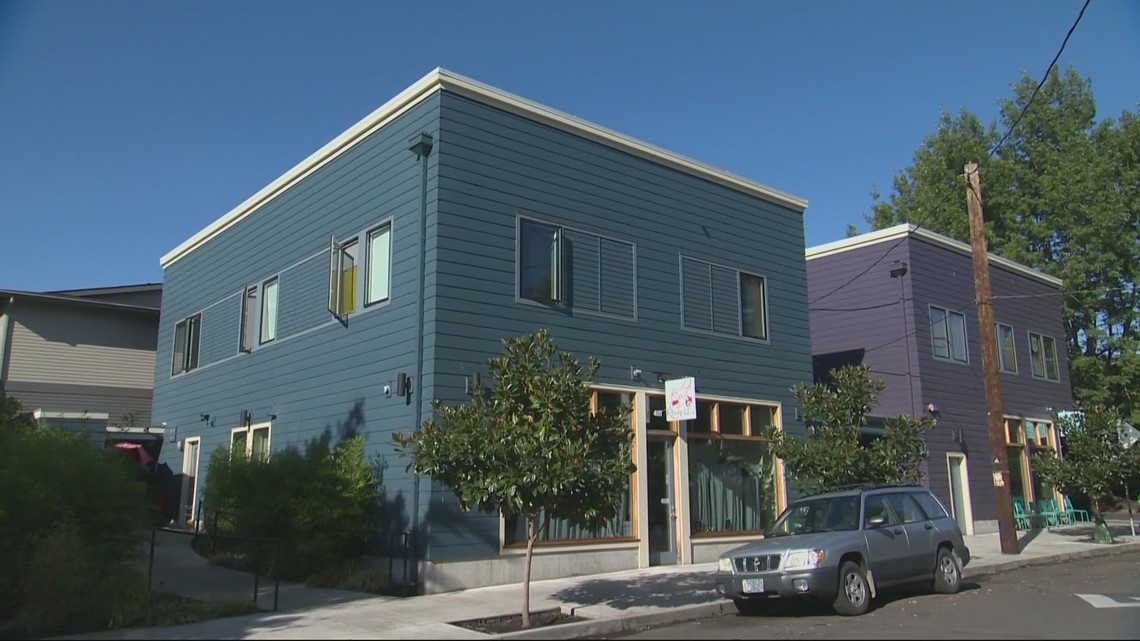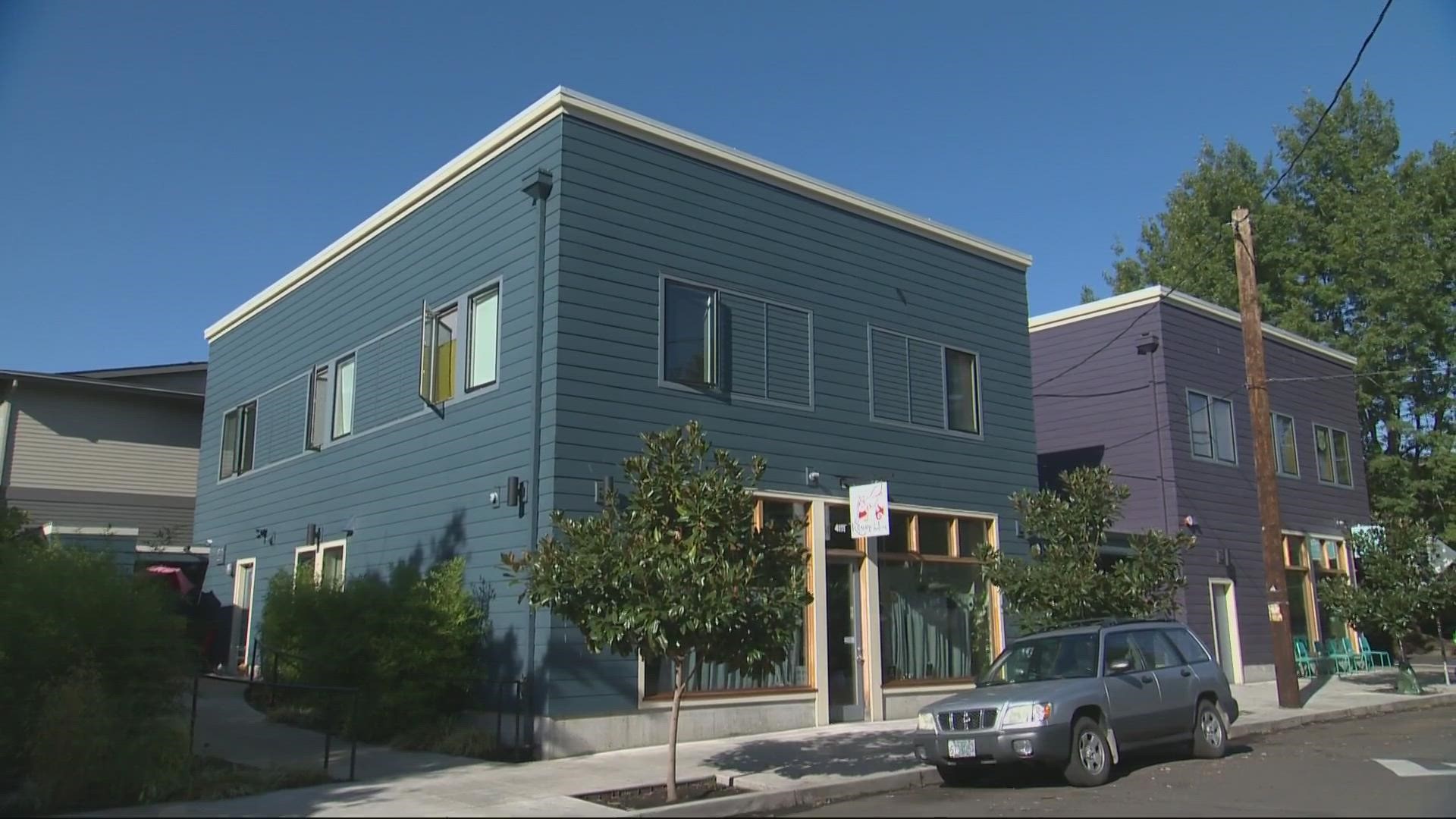PORTLAND, Ore. — There is no denying that the housing crisis in the city of Portland and Oregon is a never-ending issue. State officials have deemed the crisis a top priority, but there are barriers and financial roadblocks getting in the way.
One private developer in Southeast Portland is trying to help the city’s growing need for affordable housing by building apartments for those experiencing homelessness in a way that “fits in” but is lacking funding.
Guerilla Development along with JOIN, a local non-profit focused on transitional housing, launched its first project that’s not only sustainable but also offers affordable housing back in 2020.
“They’re like adult dorms. I refer to them as monastic housing, but it has everything you possibly need and it’s so much better than a sidewalk sleeping bag,” said Kevin Cavenaugh, owner of Guerilla Development.
Nestled in the heart of a SE Portland neighborhood off 28th Place and Gladstone sits that project — “Jolene’s First Cousin.” A pair of colorful buildings that offer retail space on the bottom and residential on top with a handful of the rooms set aside for people experiencing homelessness.


“It’s a lot better than being on the street,” said Marlon Crump, a current resident.
Crump traded in his sleeping bag for one of the studio apartments just after the building opened.
“It may not be a big, giant apartment…it may not be the Four Seasons but it’s home,” he said.
For people battling homelessness like Crump, transitional housing can be the first real step forward. But costs for this kind of housing have been climbing, and developers are afraid that the push for affordable housing won't support this first step.
“I think it’s a manageable amount of people…it’s both residential and commercial its designed and built in a way that fits in,” said Jock Gurney Kimberley, coordinator with JOIN.
Portland has changed, Cavenaugh said, and to keep up with that change, he is getting ready to break ground on two more apartment buildings like “Jolene’s First Cousin.”
“I’ve got plans and drawings. I’m shovel ready, but I can’t get out of the ground because of that bottle neck with money,” he said.
Cavenaugh said he needs roughly about a half million dollars to get the project going. He cites current interest rates and construction prices "maddening." This while the city of Portland plans on using $27 million to open three 150-person tent sites.
“I'm saying to myself do you have any idea how much 27 million dollars can get a huge portion of people off the streets,” said Crump.
Crump has been homeless in Portland for about 11 years now and pays about $450 dollars a month to live in his studio apartment. He believes affordable housing is what homeless people need, as opposed to the city’s mass encampments or large-scale shelters.
RELATED: Portland City Council faces packed chamber for testimony on Mayor Ted Wheeler's homeless plan
“To me a homeless shelter and a bed is not a solution it's not a solution at all,” he said.
“We have so much research that shows that you never break the cycle of poverty by concentrating poverty,” said Cavenaugh.
The difference between this type of affordable housing and that of Section 8, for example, is there’s up to a 10 year long waitlist, in part because people need certain documents and must pass through other barriers. Low-barrier transitional housing projects like Guerilla’s, can take just a matter of days for someone to get in, yet there needs to be more of them to keep the momentum going.
“I think the money's out there it's just a matter of identifying the folks who want to participate and be part of the solution,” said Gurney Kimberley.
Some state lawmakers are proposing to spend $200 million to address homelessness and build affordable housing. They're hoping that bill passes next month, but it's unclear if private developers — like Cavenaugh — would see any of that money.
“We used to be a city of doers and I'm questioning that now,” said Cavenaugh.

